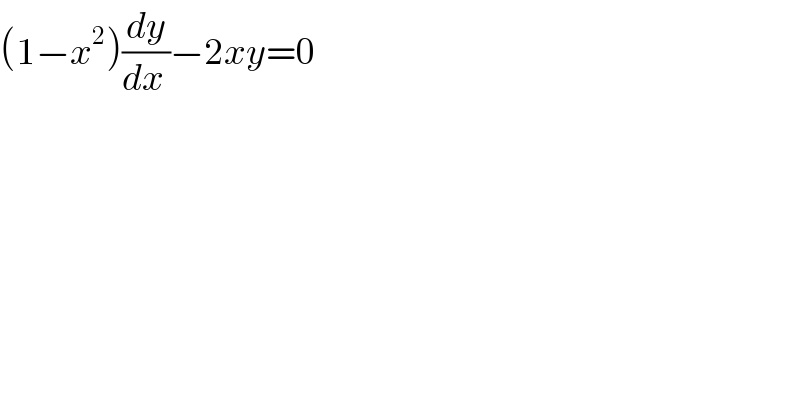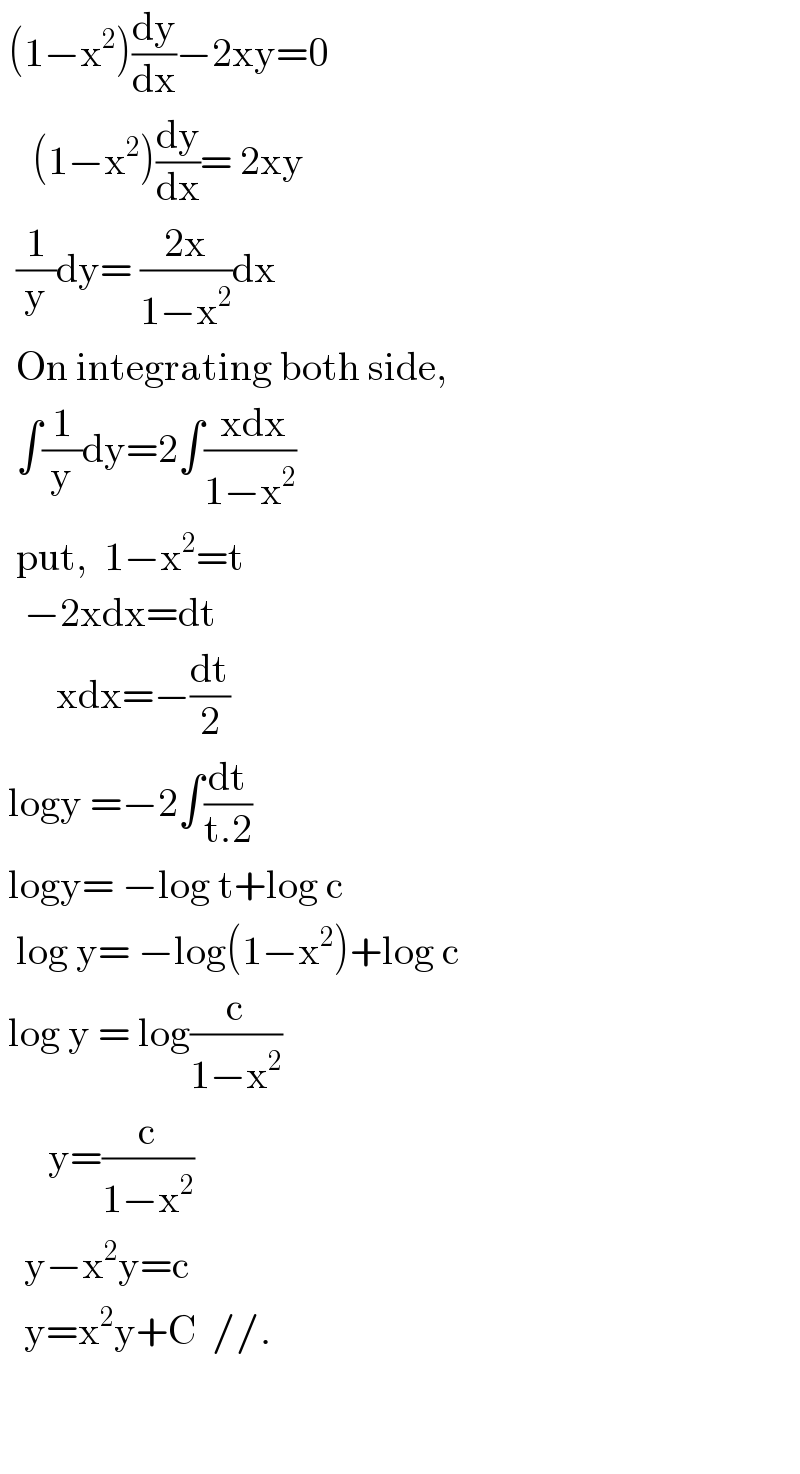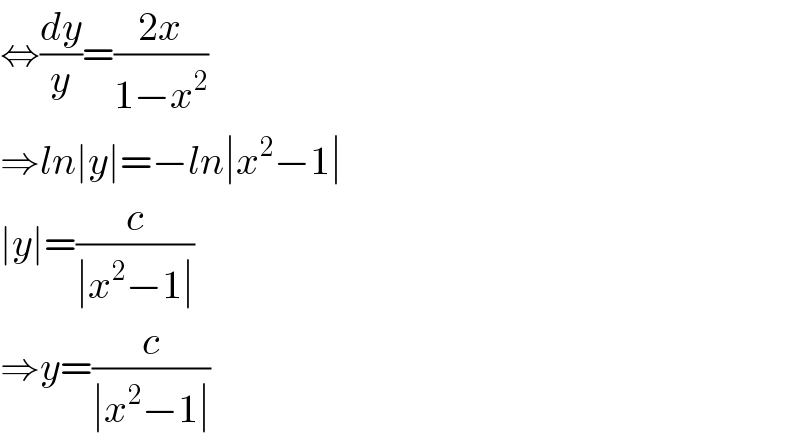
Question and Answers Forum
Question Number 85498 by Roland Mbunwe last updated on 22/Mar/20

Commented by niroj last updated on 22/Mar/20

Answered by mind is power last updated on 22/Mar/20

| ||
Question and Answers Forum | ||
Question Number 85498 by Roland Mbunwe last updated on 22/Mar/20 | ||
 | ||
Commented by niroj last updated on 22/Mar/20 | ||
 | ||
Answered by mind is power last updated on 22/Mar/20 | ||
 | ||
| ||